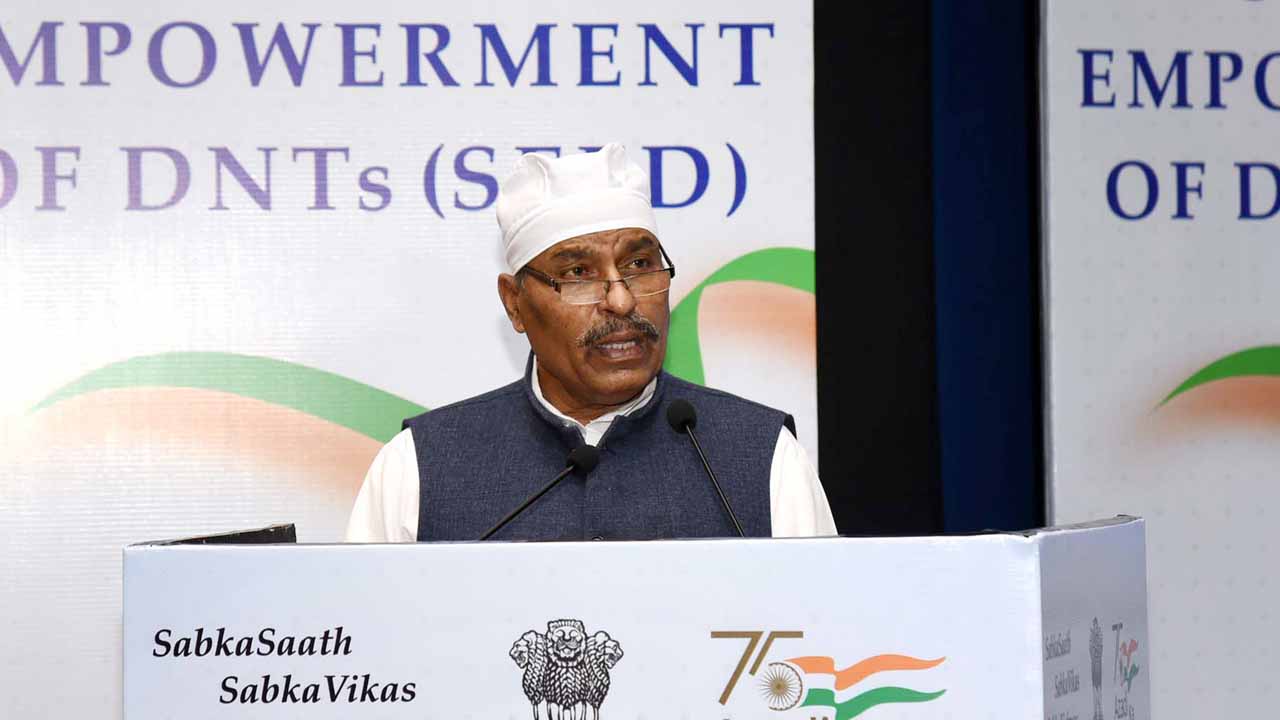The Union Minister for Social Justice and Empowerment, Dr Virendra Kumar has launched the Scheme for Economic Empowerment of DNTs (SEED) at Dr Ambedkar International Centre, New Delhi. The scheme has been designed for the welfare of De-Notified (DNT), Nomadic (NT) and Semi-Nomadic (SNT) communities.
Dr Virendra Kumar said that DNT, NT and SNT are some of the most deprived and economically weaker sections of India. The plight of these communities began with the enactment of the Criminal Tribes Act, 1871 during British rule. These communities were subjugated, persecuted and neglected. The policies of the colonial government adversely affected their lives and livelihoods. The colonial state did not realise the plight of these communities when they were presented as criminals under various colonial laws. This led to their forcible separation from their traditional occupations and residences.
SEED has four major components
- Educational Empowerment: Admission to vocational courses such as free training, medical engineering, MBA, etc., for students in this community for civic services
- Health insurance through National Health Authority’s Pradhan Mantri Jan Arogya Yojana (PMJAY)
- Means of subsistence through income growth, and
- Housing (through Pradhan Mantri Awas Yojana/Indira Awas Yojana)
The scheme will ensure expenditure of ₹200 crore for five years from 2021-22. The implementation of this scheme has been entrusted to the Development and Welfare Board for Denotified, Nomadic and Semi-Nomadic Communities (DWBDNCs)
Dr Virendra Kumar said, “The government is committed to the upliftment of the last man of society and is committed to bringing him into the mainstream of holistic development.”
SEED is the first small step towards progress and development, but not the last for these communities, which have been the victims of neglect and apathy for many years, the Union Minister said.
The scheme will be implemented through a portal, developed by the Department of Social Justice & Empowerment. The portal consists of two modules. One module is for registration of the applicant with details of his family, income, occupation, Aadhar and bank details, caste certificate, etc. Upon completing the registration, the applicant will be assigned a unique ID (UID) number, which will be his permanent registration number. With this UID, the applicant can apply to one or other components of the scheme, subject to his eligibility.
The second module consists of the scheme component for which the applicant wants to seek benefit with his UID as login id and his mobile as his password. The portal will create a permanent database and can be retrieved whenever the applicant desires to enroll for a new component.


























